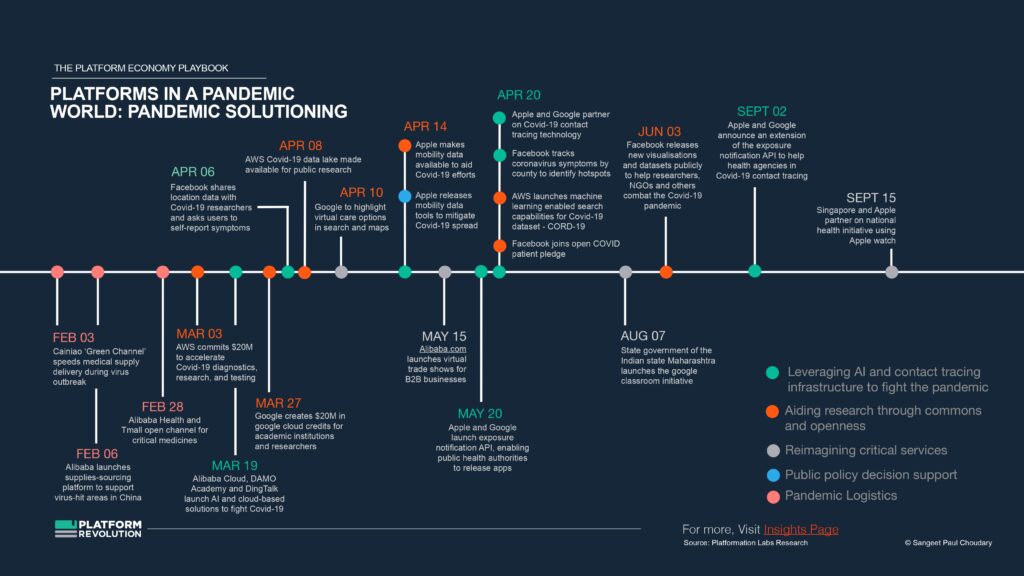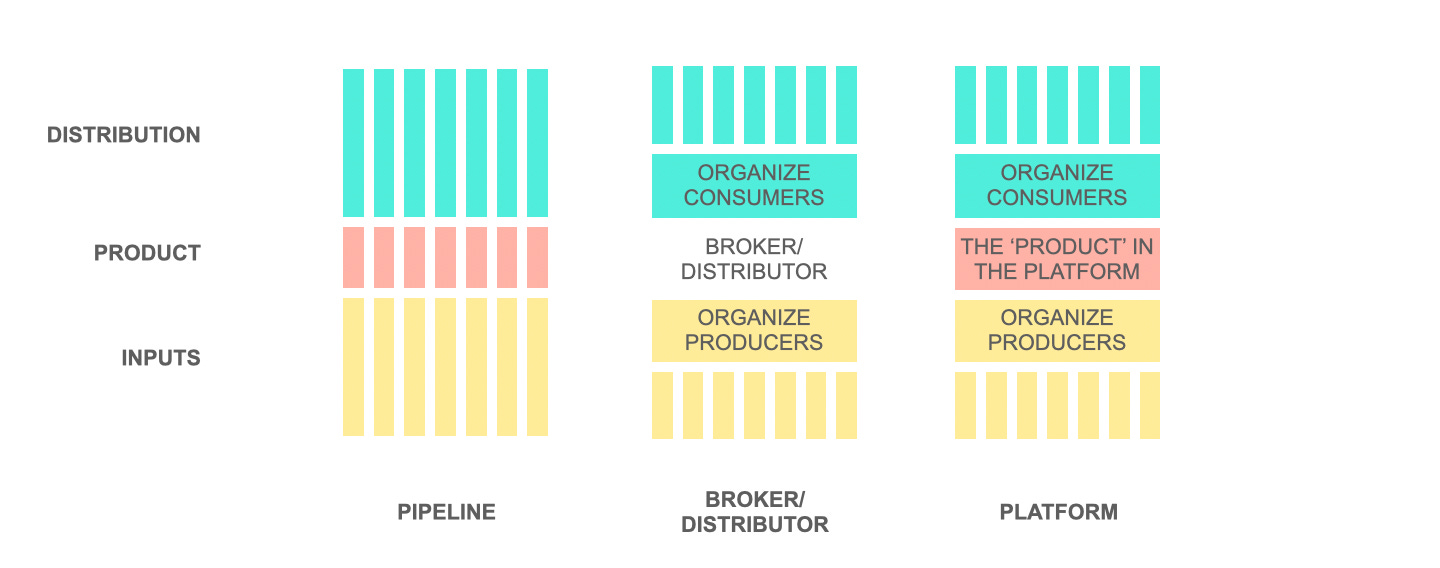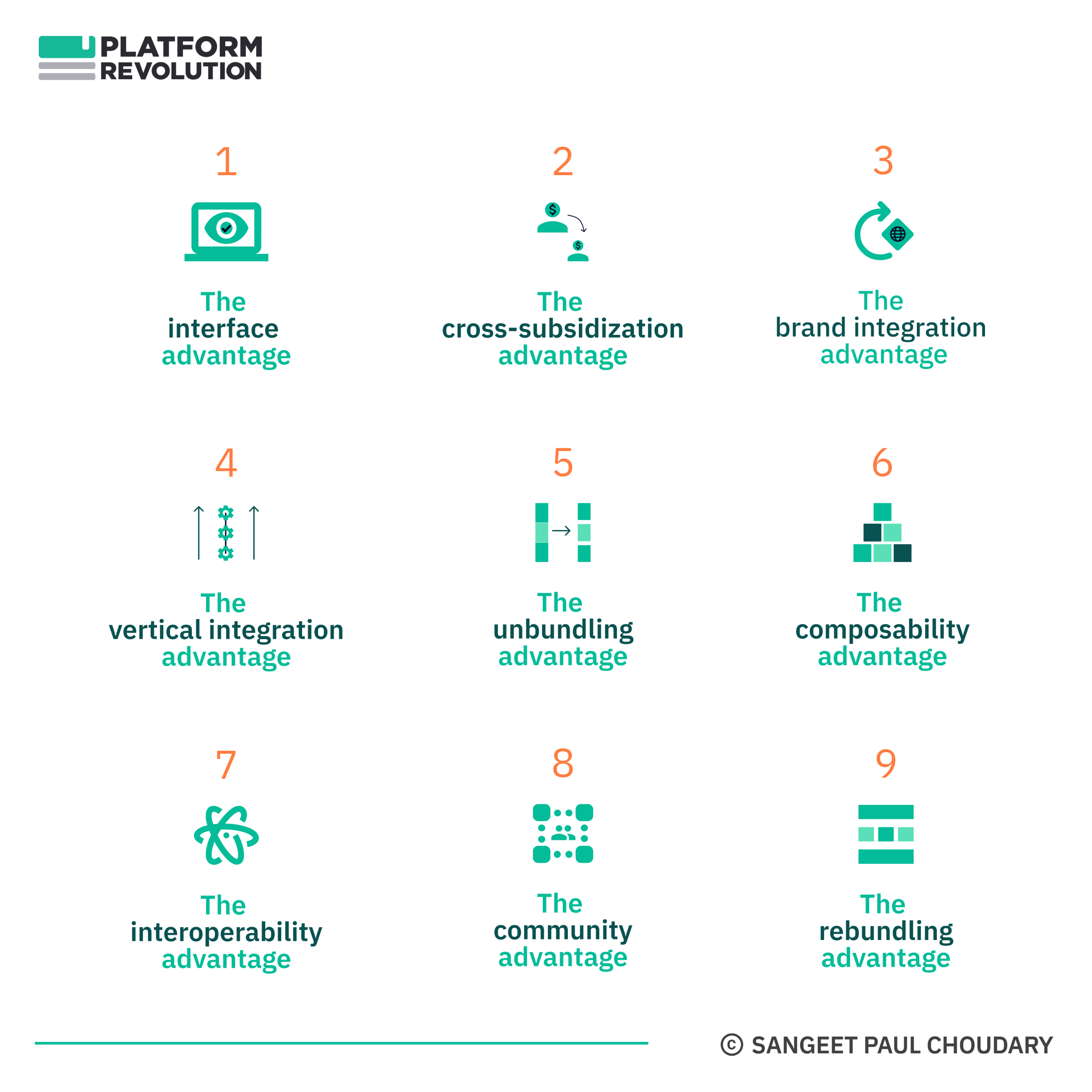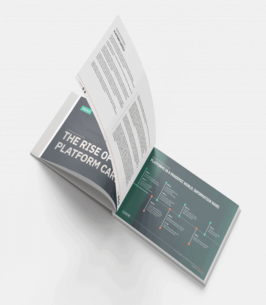Strategy
BigTech’s Role in Shaping Government Policy
“The challenges we face demand an unprecedented alliance between business and government.”
-Microsoft CEO Satya Nadella on the COVID-19 crisis.
The pandemic ushered in increased anxiety among citizens across the world. Even as governments struggled to find solutions to pandemic-induced problems, tech giants emerged as compelling providers of resources and information. BigTech companies also aided in better detection of community spread of the virus. The pandemic brought to the fore the limitations of government responses to a crisis and its struggle to provide critical services and empower communities.
Today, BigTech platforms have positioned themselves as powerful global actors. Tech companies are now gaining greater leverage by showcasing themselves in roles usually occupied by governments. When governments were grappling with the havoc of unemployment claims wreaked by the pandemic, BigTech presented itself as the solution.
The devastating consequences of the virus outbreak overwhelmed the resources of administrations across the world. The COVID-19 crisis led to a sudden and major shift to telemedicine and virtual learning. Though public health and telemedicine are usually considered the government’s statutory function, Big Tech shared the responsibility, as alluded to by Satya Nadella who said, “We at Microsoft view ourselves as digital first responders.”
Amazon and Google stepped in to provide critical infrastructure for the pandemic. AmazonFresh enabled customers to avoid physically going to the supermarkets. In April 2020, Google and Apple made it clear that they would pause their long-held rivalry and work with nations to create a new contact tracing infrastructure. They reconfigured their mobile operating systems to let users know if they are in the vicinity of a device held by a COVID-19 patient.
In particular, Big Tech made its influence clear in three key areas.
- Stopping misinformation
Content platforms reinforced their role as information mediators by combating spread of misinformation. Apart from banning ads that discouraged vaccination, Facebook also started using artificial intelligence to alert people who interacted with ‘misinformation’ and detect hateful memes. The company also donated
$2M to local newsrooms and fact-checkers covering the virus outbreak. Apple for its part removed COVID-19 related apps that were not from official health organisations. These platforms also aided information verification by authentic sources. Google Maps started a colour-coded system to identify areas hit by the virus and it showcases government-run food and night shelters in Indian cities. Both Google and Facebook funded initiatives to enable fact-checkers fight pandemic misinformation.
- Helping in pandemic response
Big Tech platforms have responded to the pandemic by providing data commons and analytical capabilities, aiding research by sharing these resources. Facebook started sharing location data with COVID-19 researchers and urges users to self-report if symptoms arise. It also made its visualisations and datasets public to help researchers. While Apple and Google joined hands for COVID-19 contact tracing technology, AWS opened its COVID-19 data lake to external researchers. Facebook also joined hands with Amazon, Hewlett Packard, IBM and Microsoft in signing the open COVID-19 patent pledge to make patents available for free.
- Stimulating a robust economic ecosystem
BigTech also left its mark in stimulating economic activity. Apple Music started a $50M COVID-19 advance fund for Indie labels. Facebook announced an additional $100 M investment to support the news industry. Google started providing around $300M as Google Ads credit for small and medium businesses. These efforts revive the economy by primarily activating their existing ecosystems. Alibaba’s TMall has launched a super consumer growth accelerator programme to help brands and has also been fuelling innovation for beauty brands in the wake of the outbreak. Alibaba’s Fliggy rolled out measures to help travel and hospitality industries while Taobao has extended free advanced settlements that allow merchants to receive payments as soon as orders are fulfilled.

Tech companies are now gaining greater leverage by showcasing themselves in roles usually occupied by governments. When governments were grappling with the havoc of unemployment claims wreaked by the pandemic, BigTech presented itself as the solution.
Feel Free to Share
Download
Our Insights Pack!
- Get more insights into how companies apply platform strategies
- Get early access to implementation criteria
- Get the latest on macro trends and practical frameworks
A BEAST IN THE MAKING?
Over the years, Big Tech has been gearing up to take up more such governmental functions even before the pandemic.
Microsoft announced that it would open a ‘representation to the UN’ and has also recruited a diplomat to run its European public affairs office. While Facebook’s suggestion of a ‘supreme court’ for controversial content moderation was condemned, it renamed the initiative as an ‘oversight board’. Alibaba has proposed a cross-border, online free trade platform – the Electronic World Trade Platform. Big Tech is well positioned to create future infrastructure…a function that is usually expected of governments.
TAKING ADVANTAGE OF REGULATIONS
On the other hand, Big Tech taking on government roles also works towards assuaging Regulators to their benefit. Large tech companies find that regulations often help in consolidating their market position. These firms welcome regulation which attacks their competitors’ competitive advantage. Apple now supports privacy regulations, while Microsoft speaks up for policies in the use of facial recognition tech. Facebook too now wants governments to regulate content online.
Zuckerberg welcomed government oversight, as long as it can be beneficial to Facebook. Asserting its stance on using regulations to its advantage, Facebook has roughly spent $17M on lobbying —more than any other tech company. In the past, companies have been known to enter into bargains with governments where they agree to respect the laws of the state if there is government protection for their monopoly. In the 1910s, AT&T president Theodore Vail agreed for his company to come under intense government regulation. This paved the way for Vail to maintain his dominance for generations. More recently, Amazon developing its second headquarters on the Potomac River has led Google and Microsoft to foster liaisons with the Intelligence community. Reputed agents of tech companies now occupy important positions in official government boards that counsel the government on computing resources. A more recent internal battle among tech companies involving a $10 billion cloud computing contract with the Department of Defense stands witness to this claim.
Increased regulation has led to greater complicity between Big Tech and the government. With the pandemic, powerful tech companies may use their relationships with government agencies to extract lucrative contracts and simultaneously destroy less powerful rivals.
MORE TO COME
Even before COVID-19, critics had predicted that the power of a few tech majors will be much more than that of the government, on account of their sheer scale and sway over public opinion and markets. A case in point is the tech industry in China. Tech companies in the country have been known to exploit data to influence human actions, and China’s social credit system maintains a tally of ‘good behaviour’. The points accumulated lead to rewards and punishments where a citizen can be penalised for basic activities. Private companies assess credit-worthiness of citizens based on such tallies. According to Wired, “The aim is for every Chinese citizen to be trailed by a file compiling data from public and private sources” that are collected via biometric information.
Authoritarianism coupled with powerful information technology is a lethal combination. Over two dozen governments are testing a software called Fleming which is developed by an Israeli firm NSO. This company has been accused by Amnesty International of making spyware that States have used to track human rights activists and dissenters (allegedly, slain journalist Jamal Khashoggi) across the world.
Yet, towards the end of 2020, we’ saw regulation re-emerge. Governments may continue playing their cards well if they successfully regulate anti-competitive moves by platforms.

State of the Platform Revolution
The State of the Platform Revolution report covers the key themes in the platform economy in the aftermath of the Covid-19 pandemic.
This annual report, based on Sangeet’s international best-selling book Platform Revolution, highlights the key themes shaping the future of value creation and power structures in the platform economy.
Themes covered in this report have been presented at multiple Fortune 500 board meetings, C-level conclaves, international summits, and policy roundtables.
Subscribe to Our Newsletter














